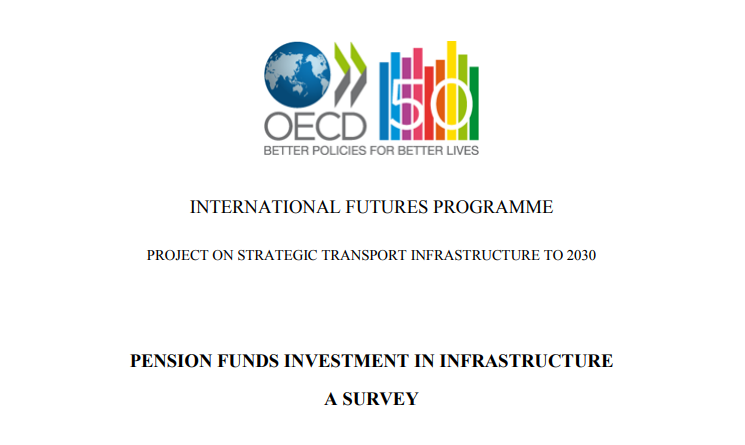934 results found
Featured results



More results

This paper takes stock of existing indicators and points to recurrent issues affecting the mobilisation of greater investment in infrastructure.






The objective of this survey-based study was to understand the main problems encountered by pension funds when investing in infrastructure.



Public-Private Partnerships (PPPs) are now being used in many countries to develop infrastructure projects.



Marsh & McLennan Companies Asia Pacific Risk Center estimates that between 55-65 percent of projects in Asia are not bankable without support from government or multilateral development banks.


Infrastructure Financing Trends in Africa – 2017 is the Infrastructure Consortium for Africa’s (ICA’s) annual report on how financial resources are being mobilised to facilitate the development of the continent’s transport, water and sanitation, energy and ICT sectors.


The PPP Contract Management Tool provides practical guidance to government officials responsible for managing public-private partnership (PPP) contracts and concession contracts during construction and operations, based on extensive data and real-life case studies.


The Financial Stability Board (FSB) have published a consultation report on the Evaluation of the effects of financial regulatory reforms on infrastructure finance.



This publication from the IADB his publication covers PPPs with a focus on the implications for public finances in developing economies.

Participating in tenders abroad might not be the right strategy for every construction company, nor is it a priority for every tendering authority to attract foreign bidders.


With a people-centred vision, the Argentine G20 Presidency placed sustainable development at the forefront of the G20 agenda in 2018, under the theme Building consensus for fair and sustainable development .
One of the primary responsibilities of governments the world over is to provide public services to their citizens, including through infrastructure projects. However, governments are often faced with limited resources, constraining their ability to finance and deliver infrastructure on their own. Thus, it is often necessary to invite a private sector party to jointly provide the services in partnership with the public sector.

The reference tool on Governmental Processes Facilitating Infrastructure Project Preparation closely examines the relationships between countries institutional arrangements for project preparation, funding programs, project identification, feasibility studies and project structuring, through the lens of country-level governance and implementation. This initiative closely aligns with the G20 Principles for Project Preparation endorsed by the G20 Leaders in November 2018.



A practical guide for governments, informed by a country-lens review of leading practices










 Website - PPP Contract Management
Website - PPP Contract Management





